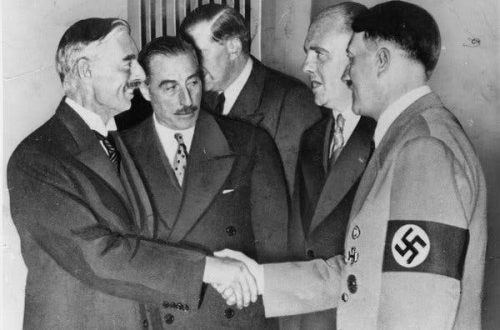The historian Paul Johnson carried out a review for the Times Literary Supplement on January 18, 2002 where he had referred to Karl Marx as “an intellectual crook, who faked, bent, or suppressed evidence to suit his preconceived conclusions.” This caused a correspondent to write in and object to the description. Below, I copy an extract from Paul Johnson’s reply setting the correspondent straight (Links added):
Marx and Gladstone
Letters to the Editor
Times Literary Supplement, February 22, 2002
Marx and his principal source and collaborator, Engels, were guilty of gross carelessness, tendentious selection and distortion, and downright dishonesty in their use of evidence. I give only one example. It was essential to Marx’s theory of Capitalism that the exploitation of the working class should increase, and its condition deteriorate. In fact, the reverse was happening in Marx’s lifetime. In his budget speech of 1863, Gladstone said, “I should look almost with apprehension and with pain upon this intoxicating augmentation of wealth and power if it were my belief that it was confined to the class who are in easy circumstances.” But, he added, “the average condition of the British labourer, we have the happiness to know, has improved during the past twenty years to a degree which we know to be extraordinary, and which we may almost pronounce to be unexampled in the history of any country and of any age.” In September 1864, in his inaugural Address to the International Working Men’s Association, Marx has Gladstone say, “This intoxicating augmentation of wealth and power is entirely confined to classes of property.” Challenged to account for this deliberate inversion of what Gladstone said, Marx gave as his source the Morning Star newspaper. But the Star, like other newspapers, and Hansard, quoted Gladstone correctly. None the less, Marx refused to retract, apologize or amend the misquotation, brazenly reproducing it in Capital, and insisting to his dying day, that the lie he had placed in Gladstone’s mouth was true.”
PAUL JOHNSON
This led to a letter, published in the TLS on March 15, 2002, from Peter Fryer, a founding member of Gerry Healy’s Socialist Labour League. Healy was of course the same person who was subsequently accused of sexually abusing at least 26 young females in his organisation over a period of many years. Fryer argued that the charge of Marx misquoting Gladstone “was comprehensively answered by Marx’s daughter Eleanor in the February 1884 issue of To-day.” He said that substantially the same sentence to the one used by Marx was published by many newspapers on April 17, 1863. Johnson dismissed this out of hand in his response the following week: Fryer was “foolish” to rely upon Eleanor Marx. Johnson noted that Marx, Eleanor Marx and Engels had desperately tried to cover up Marx’s “deliberate misrepresentation” as they wanted to “make it seem there were two sides to the dispute.” As Johnson noted after consulting both Hansard and The Times, there was only side: “Marx cheated.”
This can only lead me to a sensible recommendation: smash the SWP.


